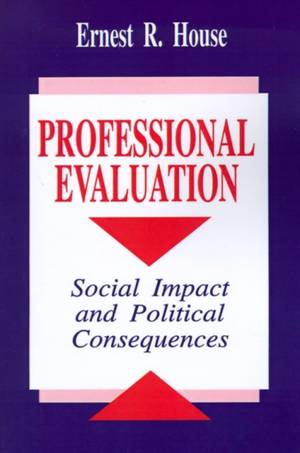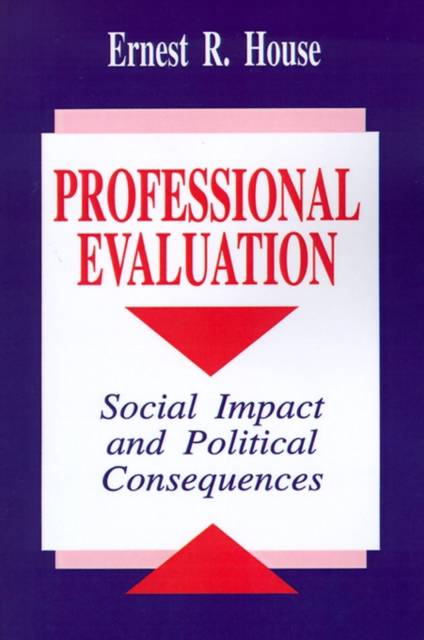
Wil je zeker zijn dat je cadeautjes op tijd onder de kerstboom liggen? Onze winkels ontvangen jou met open armen. Nu met extra openingsuren op zondag!
- Afhalen na 1 uur in een winkel met voorraad
- Gratis thuislevering in België vanaf € 30
- Ruim aanbod met 7 miljoen producten
Wil je zeker zijn dat je cadeautjes op tijd onder de kerstboom liggen? Onze winkels ontvangen jou met open armen. Nu met extra openingsuren op zondag!
- Afhalen na 1 uur in een winkel met voorraad
- Gratis thuislevering in België vanaf € 30
- Ruim aanbod met 7 miljoen producten
Zoeken
€ 216,95
+ 433 punten
Omschrijving
The book provides an in-depth examination of the history and discipline of evaluation, as well as its treatment of the subjects of ethics, justice, and professionalism. . . . The strength of the book is, without question, Ernest R. House′s many years of experience as an evaluator and his proposition that evaluation, as an institution, profession, and discipline, represents a strong and significant force in the process of social change. --Evaluation and Program Planning "This book pushes back the frontiers Ernest R. House has already established with his previous work in the political and social dimensions of professional evaluation. It represents the thoughtful reflections of an experienced evaluator with an unusual talent for original perspectives on this complex and vital emergent discipline." --Michael Scriven, Director, Evaluation Institute, Pacific Graduate School of Psychology "For 25 years, Ernest R. House has watched us who specialize in program evaluation, recording and interpreting in the best of qualitative ways, the maturation of our field. In this book, he portrays us as white collar migrant workers; carded, coddled, and manipulated by governments, reluctant to leave the comfort of social science but having outgrown that dependency, reaching toward what Michael Scriven called a transdiscipline. If Lee Cronbach once made us wince by revealing our political blood, House startles us, exposing neural ties with ethics, technocracy, capitalism, manifest destiny, even craniometry. Popping bluerock metaphors from liberal left to libertarian right, House declares us to be complex creature of nature and nurture, seldom acting of our own free will. It is a magical, mythological tour. "Never before has the special work of the program evaluator been shown to be immersed in and buffeted by such a diverse array of social, political, and philosophical currents. In an appealing mix of personal reminiscence and social commentary, Ernie House has collected a fine album of the early years of program evaluation." --Robert E. Stake, Center for Instructional Research and Curriculum Evaluation, University of Illinois at Urbana-Champaign Why do we have evaluation? Is evaluation a discipline? How much impact does evaluation have on government, education, or politics? Can social problems, such as poverty, be solved like engineering problems by the application of resources and intelligence? By exploring how evaluation has evolved as a discipline, science, and profession, House examines how evaluation impacts modern societies and the issues that this impact (social force) raises for evaluators. Addressing such issues as pluralism vs. managerialism, quantitative vs. qualitative methodologies, the purpose of higher education for knowledge production vs. educating people for professions, clientism, and multicultural concerns, House traces how evaluation has evolved as a basis for determining where the field should go--and, how.
Specificaties
Betrokkenen
- Auteur(s):
- Uitgeverij:
Inhoud
- Aantal bladzijden:
- 215
- Taal:
- Engels
Eigenschappen
- Productcode (EAN):
- 9780803949966
- Verschijningsdatum:
- 2/03/1993
- Uitvoering:
- Paperback
- Formaat:
- Trade paperback (VS)
- Afmetingen:
- 152 mm x 229 mm
- Gewicht:
- 358 g

Alleen bij Standaard Boekhandel
+ 433 punten op je klantenkaart van Standaard Boekhandel
Beoordelingen
We publiceren alleen reviews die voldoen aan de voorwaarden voor reviews. Bekijk onze voorwaarden voor reviews.











